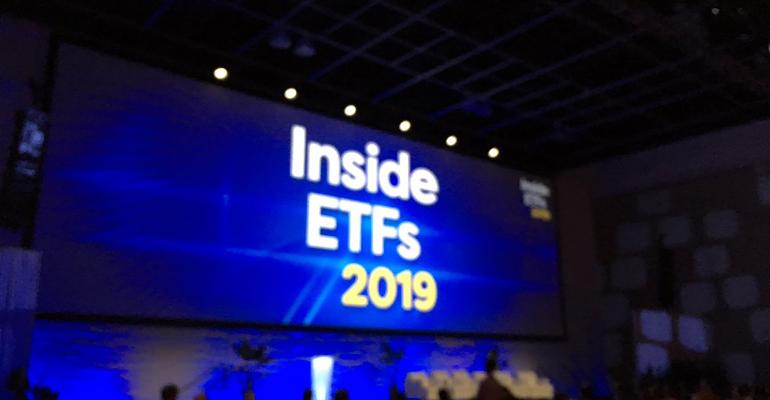The stock market is likely headed for muted gains of 5 to 6 percent, including dividends this year, says Jurrien Timmer, director of global macro for Fidelity Investments.
Earnings, interest rates, valuations and investor sentiment determine the direction of stock prices, he told Wealth Management at the Inside ETFs conference in Hollywood Beach, Fla. “Valuations are OK, sentiment got rundown in December [when stocks plunged], and the Fed has gone away for at least a few quarters.”
That leaves it to earnings, Timmer says. Profit estimates have fallen precipitously, but he believes earnings can grow 3 to 4 percent this year. “That’s slightly below historical averages, but still positive,” he notes. In the short term, he sees a partial retracement of this year’s stock rally is likely, but nothing too severe.
As for bonds, he says a 10-year Treasury yield of about 3 percent makes sense. The yield is now about 2.65 percent. Rates are unlikely to fall much, because the U.S. economy is in good shape. Moreover, foreign buying of U.S. bonds will be restrained by the fact that on a currency-hedged basis, U.S. yields are close to those in Germany and Japan.
“There is nothing to drive U.S. rates down,” Timmer says. “For an investor, U.S. bonds aren’t the best, but along with diversification, you get a yield in the high 2s to low 3s. That’s pretty good in this environment.”
Cash also represents a viable leg of a diversified portfolio, with money market yields around 2 percent, Timmer says. “It’s not a replacement for bonds, but you can add it to the menu.”
In general, you and your clients should keep in mind that broad diversification works, he says.
He’s not too big on alternative investments, such as hedge funds and private equity funds. You have to weigh the lack of liquidity with the “supposed” return, Timmer says. “For the typical investor, I’m not sure the benefits outweigh the risks. Fees are high, there’s a lack of liquidity and a lack of access for many investments. The only funds you’d want are the ones you can’t get in.”
He’s not looking for recession anytime soon. The ultimate causes of recession are excessive monetary tightening by the Fed and financial excesses, he says. “When you combine those, you get a big downturn like in 2008,” Timmer says. “Now, there are very few imbalances other than some corporate debt. Households and banks are in good shape.”
What could cause the Fed to tighten is an acceleration of inflation, but that’s not happening, he says. “In theory, we could have recovery for a long time. I don’t see any signs of recession.” Some analysts point to the flattening of the yield curve as a sign recession is coming. But, “you have to connect a lot of dots that may not be there” for this idea, Timmer says.
“At this point, the expansion is very sustainable.”





